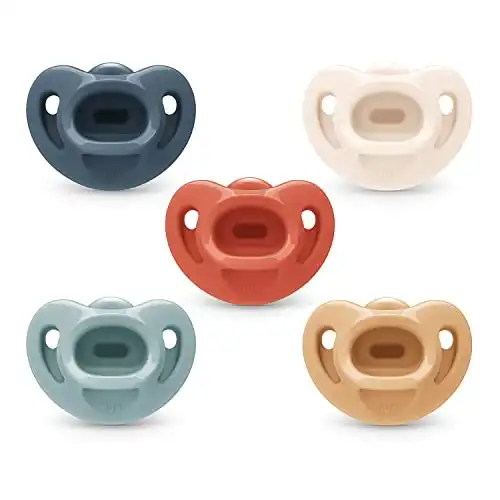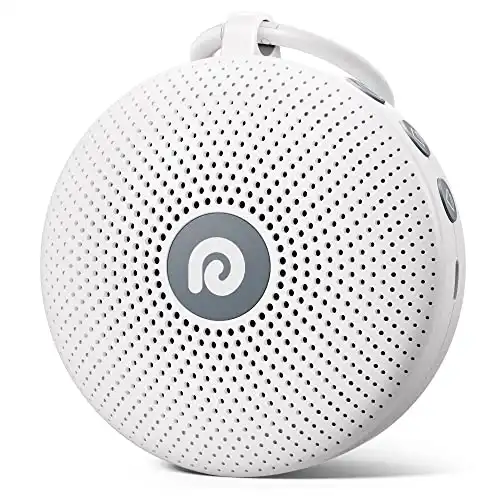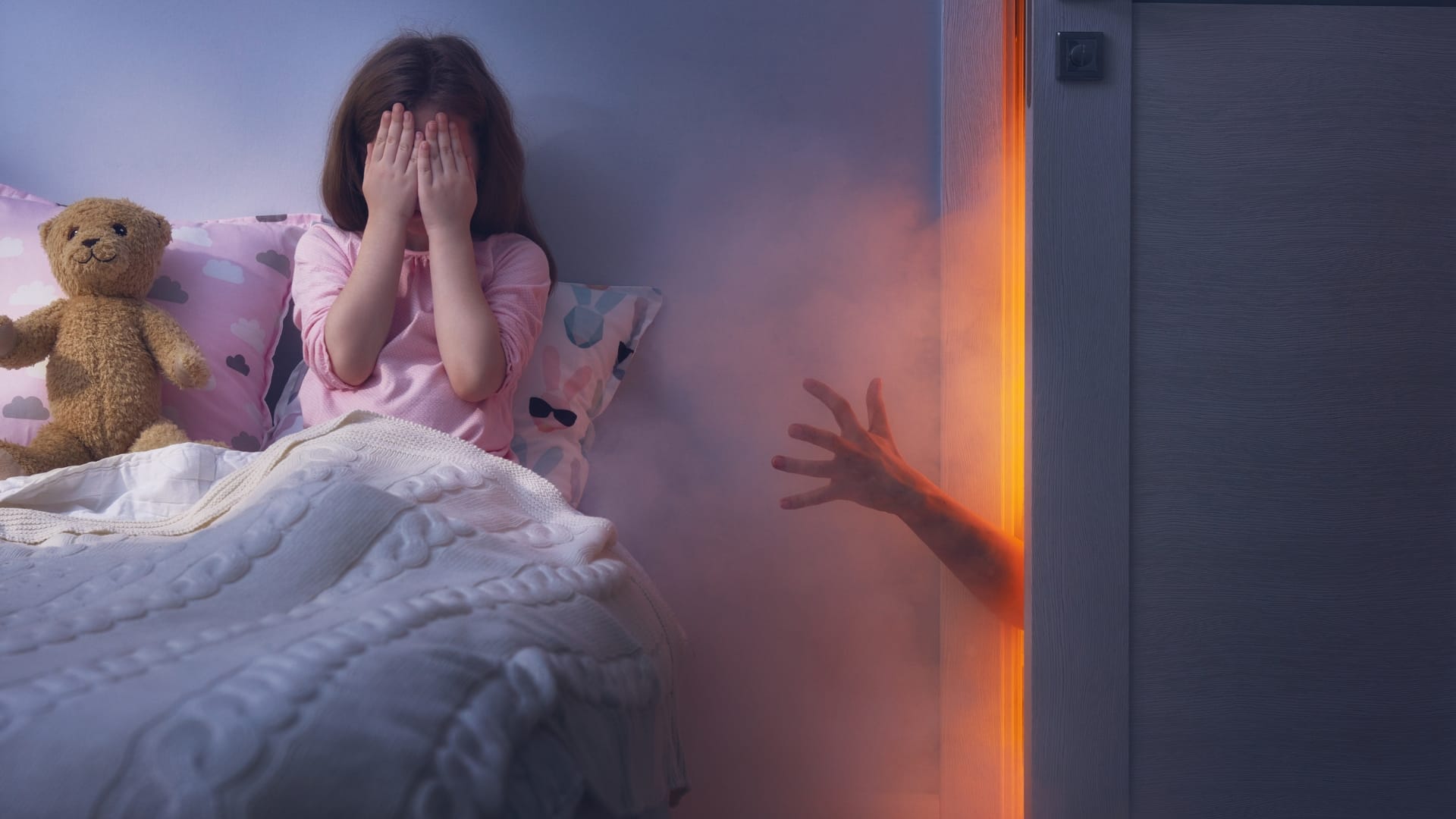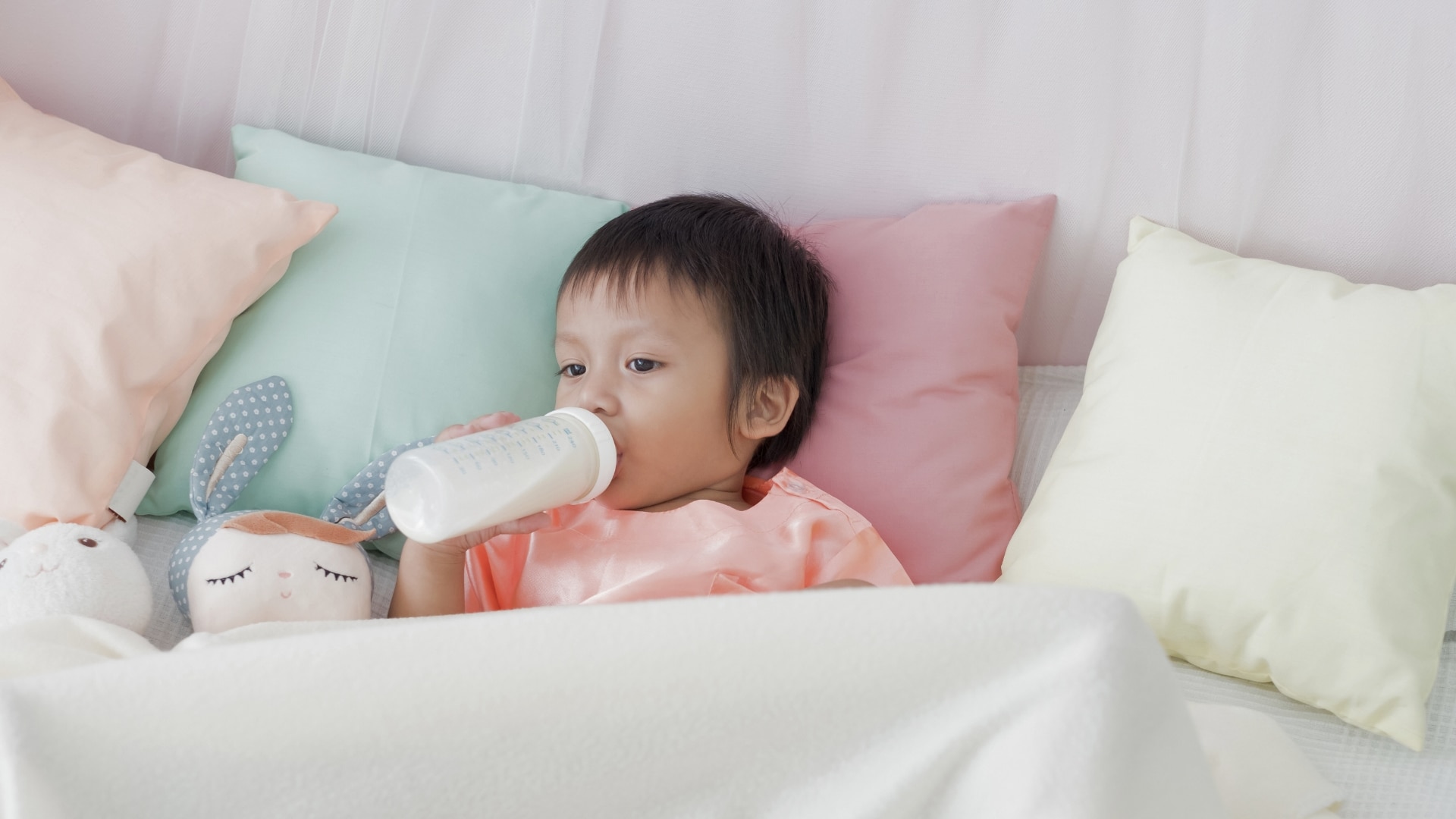If you’re a parent, you’ve probably heard your baby cry in their sleep before. But why do babies cry in their sleep? It’s a common question that many parents have. In this article, we’ll explore some of the reasons why babies cry in their sleep and what you can do to help soothe them.
Understanding the causes of why babies cry in their sleep can help you soothe them and provide them with the comfort they need whilst putting your mind at rest too.
Why Do Babies Cry In Their Sleep?
If you are a parent, you know how challenging it can be to soothe a crying baby in the middle of the night. While it’s normal for babies to cry, especially during the first few months of life, it can be frustrating and exhausting for parents.
Here are some common reasons why babies cry at night:
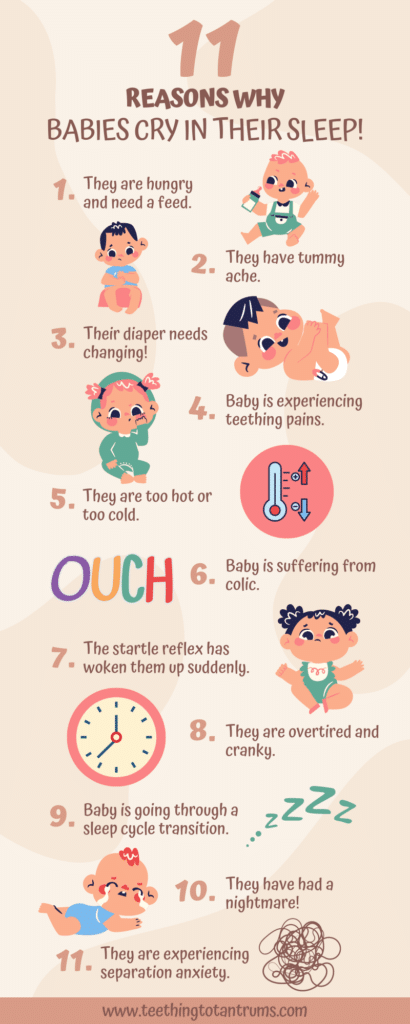
1. Baby is hungry. Hunger is the most common reason why babies cry at night. If your baby is breastfeeding (or being fed breast milk from a bottle), they may need to eat every two to three hours. Formula-fed babies may need to eat every three to four hours.
2. Tummy ache. Babies have immature digestive systems, and it takes time for them to adjust to milk or formula. This can lead to discomfort and crying, especially during sleep.
3. Diaper Changes. Wet diapers or dirty diapers can be uncomfortable for babies and cause them to cry. Therefore, this should be at the top of your list of things to check when your baby wakes crying!
4. Teething Pain. Teething can be painful for babies, and it can disrupt their sleep. If your baby is crying and drooling excessively, pulling at their ears or have flushed cheeks then they are probably teething.
5. Temperature and Clothing. Babies can get too hot or too cold easily. Make sure your baby’s room is at a comfortable temperature, and dress them appropriately for the weather. If your baby is sweating or their skin feels cold, adjust their clothing or blankets accordingly.
6. Colic. Colic is a condition where babies cry for more than three hours a day, three days a week, for three weeks or longer. The cause of colic is unknown, but it can be distressing for both babies and parents. If you suspect your baby has colic, talk to your pediatrician.
7. The Startle Reflex. The startle reflex, also known as the Moro reflex, is a normal reflex in newborns. It can cause them to wake up suddenly and cry. Swaddling your baby can help prevent the startle reflex from waking them up.
8. Overtiredness. Babies can easily become overtired, and this can make it difficult for them to fall asleep and or stay asleep. Try putting your baby to bed earlier or establishing a bedtime routine to help them fall asleep more easily and stay asleep for longer.
9. Sleep Cycle Transitioning. Babies go through sleep cycles just like adults do. During the transition from one sleep cycle to another, babies may wake up and cry. This is normal and usually only lasts a few minutes.
10. Nightmares. Another reason your baby may be crying at night could be due to nightmares. As babies develop their imaginations, they may start to experience bad dreams that cause them to cry in their sleep.
11. Separation Anxiety. Separation anxiety usually starts around 6 months of age and can result in your baby getting upset when they’re not with you. When your little one stirs at night and notices you’re not there this may cause them to cry in their sleep.
NOTE: Nightmares are not common in very young babies, but children as young as 12 months of age have been known to experience night scares.
Soothing Methods To Stop For Nighttime Crying
If your baby is crying in their sleep, you may feel helpless and unsure of what to do. Fortunately, there are several soothing methods that can help calm your baby and help them get back to sleep.
1. Swaddling and Sleep Sacks
Swaddling is a technique where you wrap your baby snugly in a blanket to help them feel secure and calm. This is an ideal solution for newborn babies as it prevents the startle reflex from waking them and also makes them feel more secure.
Sleep sacks are brilliant for older babies and children as they can help to ensure that your little one is always dressed in the most appropriate sleepwear for the weather due to the fact they are tog rates.
Designed for safer sleep, this super soft cotton sleep sack from Halo keeps baby cozy without the worry of it being kicked off during the night. Providing a seamless transition from swaddle to pyjamas, a sleep sack is an ideal stepping stone to independent sleep!
Plus with a zipper that opens from the bottom, nighttime diaper changes have never been easier.
Finally, you'll be pleased to know that HALO's sleep sacks are all approved by the International Hip Dysplasia Institute for healthy hip development.
2. Pacifiers
Pacifiers can be a helpful tool for soothing a crying baby. Sucking on a pacifier can help calm your baby and promote relaxation. However, until your baby is able to put the pacifier in for themselves you may need to get up during the night to do this for them and some parents find this is not helpful.
These cute dishwasher-safe orthodontic pacifiers have a teat that is designed to allow for a natural sucking motion, reducing pressure on the jaw and teeth, and preventing teeth misalignment! Their heart-shaped shield also fits perfectly under baby’s nose for easy breathing making them the perfect pacifier for your baby!
NOTE: The American Academy of Pediatrics (AAP) recommends delaying pacifier use in breastfed babies until the baby is at least 3 to 4 weeks old and they have established a routine with breastfeeding. Introducing pacifiers earlier than that may interfere with successful breastfeeding. For formula-fed babies you can introduce a pacifier whenever you wish to.
3. White Noise Machine
White noise can be a soothing sound for babies and can help drown out other noises that may be disturbing their sleep. I am a great fan of white noise machines and have had huge success with them to get more hours of sleep.
You can use a white noise machine or app, or even just a fan or humidifier to create a calming environment for your baby.
White noise machines are a game-changer for your little one's sleep and having one that plays all night is a must. With a long-lasting battery, this compact and stylish white noise machine contains 21 non-stop relaxing noises, which will lull your little one to sleep night after night, no matter where you are!
4. Nighttime Routine
Establishing a consistent nighttime routine can help your baby feel more secure and relaxed at bedtime.
This can include activities like a warm bath, a baby massage, a bedtime story, or a lullaby. Keep the routine consistent every night to help your baby associate these activities with sleep.
5. Self-Soothing
Encouraging your baby to learn to self-soothe from an early age can really help them fall back to sleep on their own. This can include giving them a lovey or soft toy to cuddle, or gently patting their back until they fall asleep.
It’s important to note that self-soothing can take time and patience, but will ultimately lead to better sleep for both you and your baby.
Looking to get your little one to sleep quickly and effortlessly through a healthy nighttime routine? Check out my Bedtime and Nap Cheat Sheet and master the art of making daytime naps and bedtimes as seamless as possible.
A bedtime & nap cheat sheet so good your little one will ask you to put them to bed...
Laura Williams "This is a life saver! I'm so glad I downloaded your bedtime & nap cheat sheet. My little one actually asked me to put him to bed last night! Unbelievable! Thank you so much!"
Click Here For The FREE Cheat Sheet
Frequently Asked Questions About Why Babies Cry In Their Sleep
Looking for more information on why babies cry in their sleep? Here are the most common questions answered.
Is It Normal For Babies To Cry In Their Sleep?
Yes, it is normal for babies to cry in their sleep. In fact, it is very common. As we have seen babies cry in their sleep for all sorts of reasons but luckily there is plenty you can do to help them resettle.
Do All Babies Cry In Their Sleep?
Not all babies cry in their sleep, but it is very common. Some babies may cry more than others, and some babies may cry only occasionally. If your baby is crying in their sleep frequently or seems to be in pain, it may be a good idea to talk to your pediatrician to help identify the cause.
When Should I Consult A Pediatrician About My Baby’s Nighttime Crying?
If your baby cries excessively in their sleep or if their crying seems to be associated with discomfort or pain, you may want to consult your pediatrician or healthcare provider.
A pediatrician can help you determine if there is an underlying medical issue causing your baby’s crying. They can also provide guidance on how to manage your baby’s sleep and help you develop a plan to soothe your baby when they cry.
It’s important to remember that it’s normal for babies to cry in their sleep occasionally. However, if your baby’s non-stop crying is causing you to feel overwhelmed or anxious, it’s important to seek help. Mental health is just as important as physical health, and it’s okay to ask for support when you need it.
If you’re concerned about your baby’s sleep or crying patterns, don’t hesitate to reach out to a pediatrician. They can provide you with the support and guidance you need to help your baby sleep soundly and safely.
What Are Baby’s Sleep Cycles And Patterns?
Babies have shorter sleep cycles than adults, typically lasting only 50-60 minutes. During these cycles, they move through different sleep stages, including light sleep, deep sleep, and active sleep.
Newborns spend more time in active sleep than adults, which is why they may seem restless or make noises in their sleep.
What Is The Difference Between REM Sleep And Deep Sleep In Babies?
During active sleep, babies experience rapid eye movement (REM) sleep, which is the light, active phase marked by dreams, moving in the crib, and some tears. In contrast, deep sleep is a quiet and restful phase where it’s harder to wake the baby (also known as non-rapid eye movement NREM).
Again, newborns spend more time in REM sleep than adults, which is why they may cry more frequently in their sleep.
Will A Sleep Regression Cause Baby To Cry In Their Sleep More?
Around four months of age, babies experience a sleep regression where they may start waking up more frequently at night... but they won’t necessarily cry in their sleep any more than normal.
Sleep regressions are a normal part of their development and can be caused by factors such as teething, growth spurts, or changes in their sleep patterns.
If your baby is going through a sleep regression try to establish a consistent bedtime routine and be patient as they adjust to their new sleep patterns.
REMEMBER: While it’s normal for babies to cry in their sleep, if you notice any sleep-related issues such as frequent nightmares or restless sleepers, consult your pediatrician for medical advice.
Need More Parenting Help?
- Download our FREE Perfect Sleep Cheat Sheet. It’s a free, easy-to-use and proven formula designed for parents of 0-5 year olds to master the art of consistently undisturbed and restful sleep without the yelling, nagging or exhausting long-winded evenings.
- Check out our Parenting Toolbox. You’ll get access to expertly-chosen products that you can guarantee are the best for your little one and your wallet.
- Ready to create the calm, peaceful evenings you deserve? Then checkout our most popular course - The Bedtime Battles Masterclass

A bedtime & nap cheat sheet so good your little one will ask you to put them to bed...
Laura Williams "This is a life saver! I'm so glad I downloaded your bedtime & nap cheat sheet. My little one actually asked me to put him to bed last night! Unbelievable! Thank you so much!"
Click Here For The FREE Cheat Sheet

